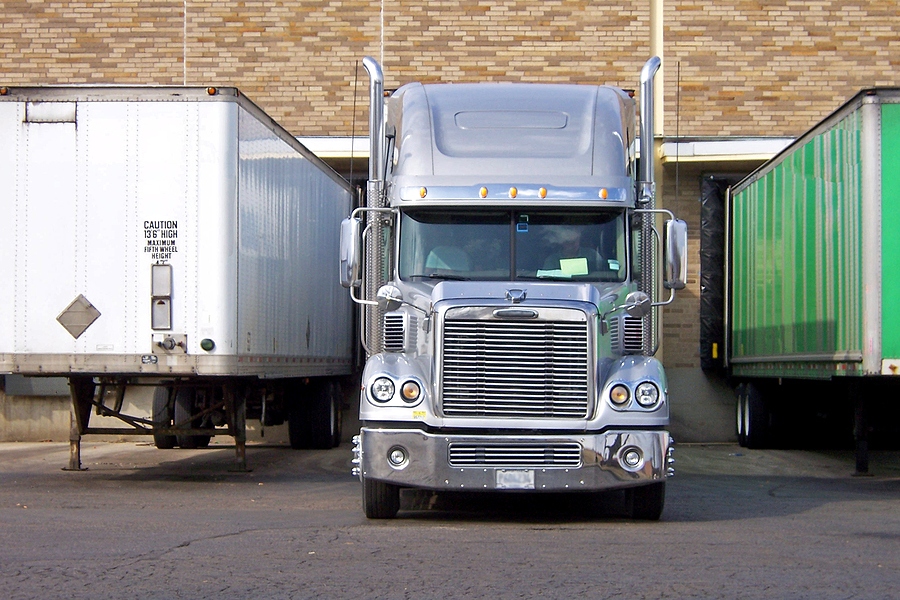
There are several types of truck accidents, and they can all have devastating results. Many of these accidents can be attributed to inexperienced drivers due to a trucking shortage, or negligence on the part of drivers as well as trucking companies and other parties. Whatever the cause of your accident, if you’ve been severely injured you deserve to obtain the maximum possible amount of compensation.
The truck accident attorneys with Sand Law have helped many clients do exactly that. We have the skill and resources it takes to perform a thorough investigation, uncovering the evidence it takes to make our clients’ cases as strong as they can be. If you would like to learn more about what we may be able to do for you, please contact us online or call 651-291-7263 to schedule a free consultation.
The following information is a look at five of the most common types of trucking accidents, and some of the things motorists can do to avoid them.
1. Jackknife Accidents
Most commercial trucks on the road consist of the cab, where the driver sits, and the trailer, which carries the cargo. When a truck jackknifes, the area between the cap and trailer folds. The back of the trailer lurches forward, and the rig is suddenly facing two directions at once, causing the driver to completely lose control.
There are a lot of reasons why this kind of accident can happen. A driver may be distracted, and has to make some sort of sudden maneuver to try and avoid some sort of hazard on the road. The cause could be some sort of equipment malfunction, possibly due to the failure of a faulty part. Weather conditions could also play a role.
2. Lost Load
Accidents involving a huge, 80,000-pound truck are bound to be more dangerous than most collisions between two passenger vehicles. Another common reason these accidents take place is due to a sudden shift in the cargo the truck is carrying. When cargo shifts during transit, that throws the truck off balance. As a result, it will be at a high risk of a rollover, a jackknife, or some other potentially horrible outcome.
If an investigation reveals that negligent loading led to an accident, you may be able to sue the trucking company, or any independent company that was responsible for loading the truck.
3. Underride Accidents
All truck accidents can be terrible, of course, but an underride accident can be particularly scary. It happens when a passenger vehicle hits a truck from the side or rear, sliding underneath the truck in the process. Trucks sit much higher on the road than the typical passenger car, and that can lead to the top and front of the car being crushed.
There are many trucks that now have metal barriers, known as underride guards, designed to keep this type of accident from happening. Unfortunately, these barriers are often not strong enough to be able to withstand such a forceful impact.
Why do accidents happen? Like most truck accidents, there can be several potential causes. The driver of the truck may stop suddenly, and the motorist can’t react in time. Or, a truck driver might not be able to see a car, because it’s traveling in the trucker’s blind spot. The trucker might fail to signal before a turn. Whatever the reason, if the trucker’s negligence caused the accident, you may be able to take action against that driver as well as the company that owns the truck.
4. Rollover Accidents
Rollovers are also incredibly frightening. While they can happen to SUVs, big commercial trucks are even more at risk. It can happen due to a slick road, speeding, a driver trying to make a sudden lane change or having to swerve unexpectedly, and a host of other issues. Oftentimes, fatigued drivers won’t be able to react soon enough to avoid something like a car or an animal, and their truck will roll over as a result.
There are two main types of rollover accident – tripped and untripped. A tripped rollover occurs when a truck hits something that rolls over as a result. It could be a car, a guardrail, or another object. An untripped rollover typically happens due to the driver making some sort of dangerous maneuver, such as taking an exit ramp too quickly. An imbalanced load, as you already learned, can also lead to a rollover.
5. Tire Blowout
All truck accidents can be deadly, of course, but a tire blowout is particularly dangerous. A sudden blowout can lead to a loss of control, resulting in a jackknife or a rollover. Pieces of blown out truck tires can strike nearby passenger vehicles, causing the drivers to lose control as well. Pieces of tire can even slam through a car’s windshield, severely injuring drivers and passengers.
One of the biggest tragedies of a tire blowout accident is that, oftentimes, it didn’t have to occur in the first place. Trucking companies may be negligent in checking and/or maintaining their tires. Manufacturers can make defective tires that are more prone to a blowout. Accident victims and their families may be able to take action against companies and manufacturers if this is the case.
Speak with an Experienced Minnesota Truck Accident Attorney
If you’re fortunate enough not to have been involved in this type of horrific accident, the attorneys with Sand Law would like to share some information that will, hopefully, keep this from ever happening. Please keep the following in mind when sharing the road with a commercial truck.
- Don’t drive while distracted so you can react if a nearby truck ever loses control.
- Leave plenty of room between you and any trucks on the road. Don’t follow too closely, and pass a truck as soon as you can – safely, of course.
- Stay out of the truck driver’s blind spot. If you can’t see the driver’s face in their side mirror, that likely means the driver can’t see you.
If you’ve been injured or lost a loved one in a truck accident, don’t hesitate to contact Sand Law. We will work passionately on your behalf to help you get every penny you deserve. Use our online form or call 651-291-7263 for a free case review.

